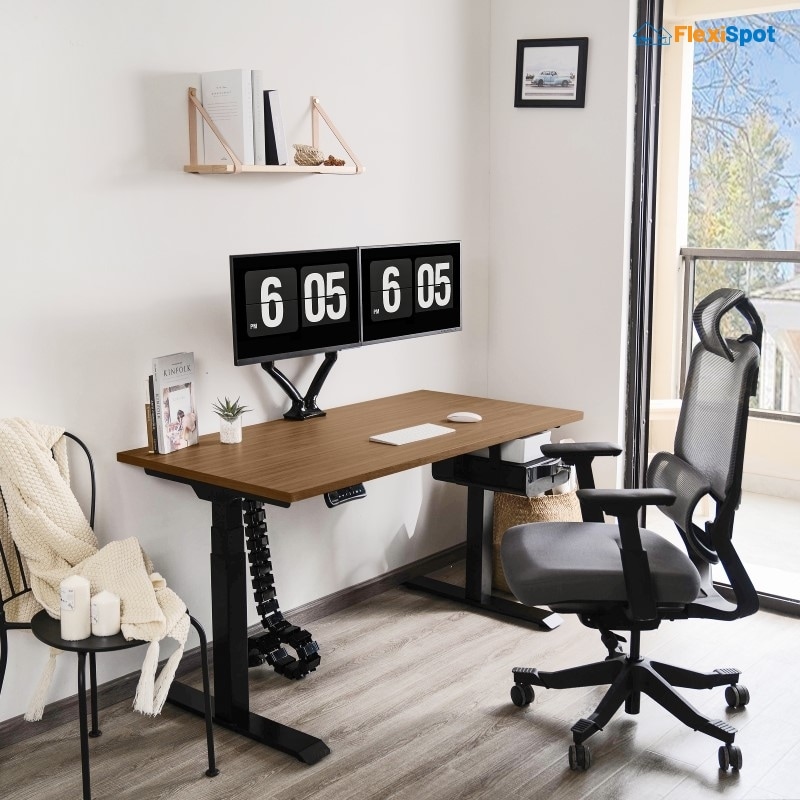While some workers' work-from-home experiences have gone well as a result of the epidemic, Gen Z employees are in danger and need re-energizing, according to recent research.
According to Microsoft's newly issued Work Trend Index, which featured comments from 30,000 worldwide employees, last year has been particularly disruptive for Generation Z workers. Some of them actually began their careers in the midst of the epidemic and are suffering more than employees of other age groups.
Nearly 60% of Gen Z employees claimed they are surviving or suffering rather than flourishing. 64 percent of new workers who have been with a firm for less than a year are struggling or surviving. Another recent poll indicated that fewer than 15% of Gen Z employees like remote work and had no concerns with it.
A majority of employees seek flexibility, according to new research from global employment agency Randstad USA and Apartment Guide, although many confess to distractions and trouble unplugging at the end of the day while working from home:
57 percent confess to performing housework while working from home, such as washing, cleaning, or cooking.
32% confess to being distracted by the television.
A pet or kid has disrupted a work call for 29% of people.
44% like working in an office because it allows them to unplug from their employment more easily.
While working at home might save money on commuting, it can also cause loneliness, particularly among younger employees; working from home is lonely for 43 percent of Gen-Z employees, compared to 26 percent of workers who don't find it lonely. This increases the likelihood of disengagement and perhaps even burnout.

Ongoing Acknowledgment
Recognizing your remote workers' efforts on a regular basis might help them feel less invisible, lonely, and undervalued, all of which can affect remote employee retention. There are different ways that you can go about this. Some companies hand out certificates, acknowledgement through awards, bonuses, and more! Even giving consistent positive feedback whenever they excel at work can make a huge difference.
Quarterly In-Person Meetings
Bringing everybody together underneath one roof at least once a quarter, whether for a worker retreat or Christmas party, will foster a feeling of community, enhance team building, and increase employee morale. These face-to-face sessions are also a great opportunity to highlight staff achievements.
You can also take this opportunity to get feedback on how remote work is going for them. If they have any complaints about their current workstations, facilities, and resources, make sure to take note and offer some solutions to improve their workflow.

Proper Work from Home Station
Just because your employees are working from home, it doesn’t mean that they should be left to their own devices to figure out their work-from-home desk. If you are wondering how to engage with Gen Z workers who feel disconnected, you need to make sure that you are doing everything you can to let them know that you care about their well-being.
The Willow Standing Desk by FlexiSpot has an ergonomic design that workers can adjust according to their preferences. The use of natural wood offers a warmer vibe, and the height adjustability allows employees to curate their workstation according to their height. With just a push of a button, you can convert it from the sitting position to a standing one.
Prolonged sitting can have a dire impact on your health, so taking breaks from sitting and standing for some time can be quite healthy. It is known to reduce the risk of cardiovascular diseases, cancer, diabetes, and obesity. It can also help reduce back, neck, and shoulder pains so that employees are more comfortable while working.
Communication Routes that are Open
Because they are not physically there, remote employees are often kept out of the loop. Remote workers, like typical in-office employees, desire clear job objectives and availability of information. They want to know where to go, who to speak to, and how to start discussions or requests when they have concerns or questions.

Check-Ins on a Regular Basis
Prioritizing daily check-ins shows remote workers that they're important members of the team and helps them keep on track when things change. Since remote teams might be geographically distributed and operate in various time zones, it's a good idea to designate a group of corporate employees to be available throughout standard business hours.
Difficult Work Assignments
It's common for remote employees to feel cut off from their coworkers. Worse, they have the impression that they are just cogs in the system, tasked with certain duties but receiving little care in the process. The goal is to make individuals feel appreciated, not forgotten, by giving them greater responsibilities that give their job and career growth significance.

Your Approach to Conversations
Any human resource manager who has performed departure interviews knows the influence a line manager may have on an employee's devotion to their position. Almost one-fifth (18%) of those around 21-34 claimed their connection with their supervisor had deteriorated since the outbreak of Covid-19, and a quarter (25%) of those aged 21-24 indicated they had received no supervisor assistance throughout the pandemic.
It's well known that making employees feel engaged and appreciated requires a strong connection between the manager and employee established through a two-way discussion. It gives HR Managers the knowledge they ought to have to make the best policy choices for their organization, workers, and customers when a robust feedback loop is in place.
HR managers should ensure that their line managers have the tools they need to conduct these discussions as a top priority. Consider providing more training or offering new technologies to help individuals connect more effectively.
Flexibility in the Workplace Promotes Empowerment
When it comes to the majority of things, HR managers will be aware that workers desire flexibility and alternatives. This is not just about regular old alternatives, however. HR managers must figure out what will work best for their particular staff and firm.
The most essential thing is to have a discussion rather than a mandate. Take the time to truly understand what is important to your employees and develop flexible working solutions appropriately, using the information you've gathered from them.
Allowing employees to feel that they are actively listened to -and acknowledged!- promotes an inclusive culture that recognizes and encourages individuals' contributions regardless of how or where they work. Striking for more inclusion will almost certainly result in increased job satisfaction and retention rates for remote workers.

Having a Social-First Mindset
It's tempting for managers to believe that in-person social connections can quickly alleviate their workers' sense of isolation. However, since many people are nervous about meeting new people face to face, in-office human connections and meetings will be different than before and may seem awkward at first.
Undoubtedly, some employees will accept any reason to return to work. Employers would be challenged to make a strong argument for why work must be done in an office and the value of in-person interaction and engagement in many circumstances. HR managers and corporate executives should think about how to engage people and build new partnerships.
For example, introducing a program targeted at forging new interactions amongst workers who may not otherwise meet due to location or other considerations. Participants may opt up for a 15-30-minute personal video conference as an icebreaker. Our staff has expressed their gratitude for how it has aided them in making meaningful relationships.
Employee Morale and Productivity
Since we spend so much of our time at work, companies' support for employee well-being has always been crucial. Of course, the epidemic has heightened this responsibility, and our results confirm its importance.
For many people, especially those who live alone, conversing with coworkers could be the only opportunity they have to engage with someone on a daily basis. It makes a huge difference to give folks time to communicate -to recreate those water-cooler moments. Managers who keep a close eye out for behavioral changes will be prepared to provide assistance if necessary.
Working remotely forever will be 'normal' for many of the younger employees or may make up the majority of their work experience. Because remote/hybrid working is here to stay, HR managers must listen to all of their workers this year and implement long-term policies and practices to alleviate the sense of loneliness and prepare for the future of remote/hybrid working. If they don't, they risk being victims of the Great Resignation, which is every HR team's worst nightmare.
Now that you know how to defeat isolation when working from home, it is essential to take these steps. Remote work can be great for employees since it offers more flexibility but is only viable in the long run when some needs are taken care of.
